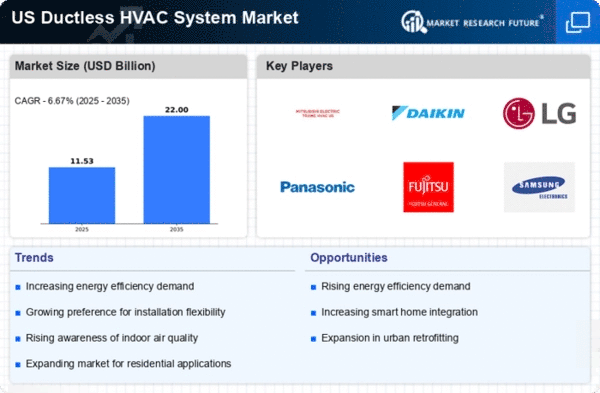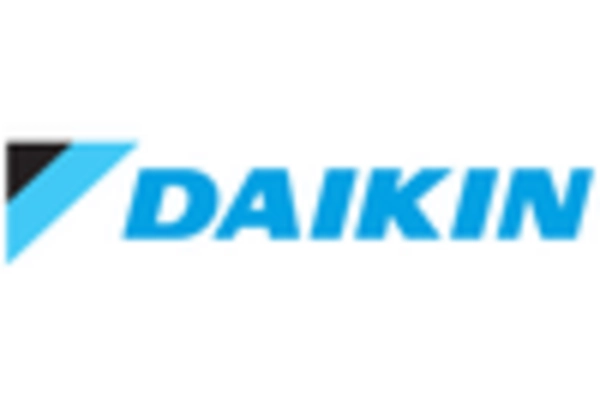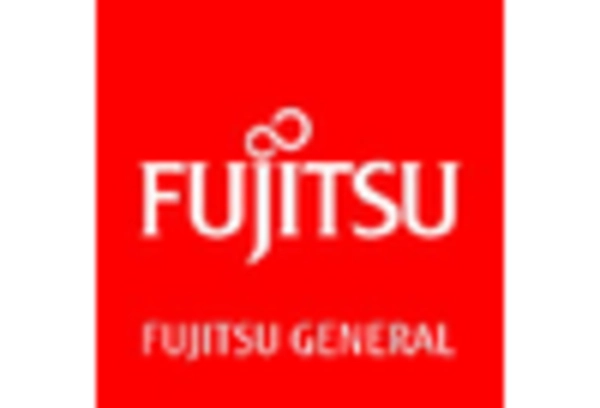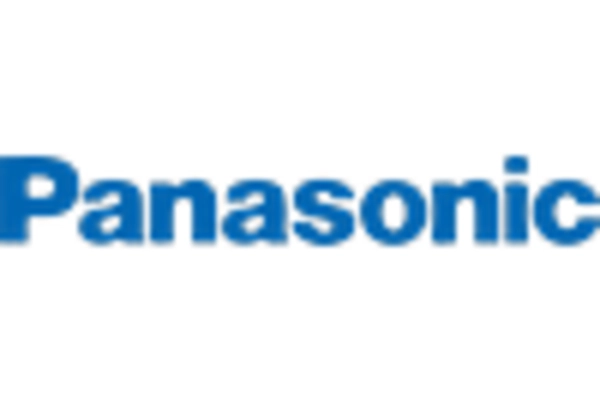Rising Energy Costs
The The ductless HVAC system market is experiencing a notable surge in demand due to rising energy costs across the United States. As energy prices continue to climb, consumers are increasingly seeking energy-efficient solutions to mitigate their utility bills. Ductless systems, known for their high efficiency and ability to provide targeted heating and cooling, are becoming a preferred choice. According to recent data, ductless systems can reduce energy consumption by up to 30% compared to traditional HVAC systems. This shift towards energy-efficient technologies is likely to drive growth in the ductless hvac-system market, as homeowners and businesses alike prioritize cost-effective solutions that align with their sustainability goals.
Regulatory Support for Energy Efficiency
The The ductless HVAC system market is poised for growth due to increasing regulatory support for energy efficiency initiatives in the United States. Government policies and incentives aimed at promoting energy-efficient technologies are encouraging consumers to adopt ductless systems. For instance, various state and federal programs offer rebates and tax credits for homeowners who install energy-efficient HVAC systems. This regulatory environment is likely to stimulate demand for ductless systems, as consumers are incentivized to invest in technologies that align with energy efficiency standards. As regulations continue to evolve, the ductless hvac-system market may see a significant uptick in adoption rates.
Increased Awareness of Indoor Air Quality
The The ductless HVAC system market is benefiting from a growing awareness of indoor air quality (IAQ) among consumers. With rising concerns about health and well-being, individuals are increasingly recognizing the importance of maintaining clean and healthy indoor environments. Ductless systems, which often come equipped with advanced filtration technologies, can significantly improve IAQ by reducing allergens and pollutants. This heightened focus on IAQ is likely to propel the ductless hvac-system market, as consumers seek systems that not only provide comfort but also contribute to a healthier living space. The market is projected to expand as more individuals prioritize their health and invest in solutions that enhance their indoor environments.
Technological Advancements in HVAC Systems
The The ductless HVAC system market is witnessing a wave of technological advancements that are enhancing system performance and user experience. Innovations such as smart thermostats, remote control capabilities, and improved inverter technology are making ductless systems more appealing to consumers. These advancements not only increase energy efficiency but also provide users with greater control over their heating and cooling preferences. As technology continues to evolve, the ductless hvac-system market is likely to attract a broader customer base, particularly among tech-savvy consumers who value convenience and efficiency in their HVAC solutions.
Growing Demand for Flexible Installation Options
The The ductless HVAC system market is experiencing growth driven by the increasing demand for flexible installation options. Unlike traditional HVAC systems, ductless systems offer the advantage of being installed in various configurations, making them suitable for a wide range of residential and commercial applications. This flexibility is particularly appealing in urban areas where space constraints may limit installation options. As more consumers seek adaptable solutions that can be tailored to their specific needs, the ductless hvac-system market is likely to expand. The ability to install these systems without extensive ductwork further enhances their attractiveness, positioning them as a viable option for modern living spaces.
















